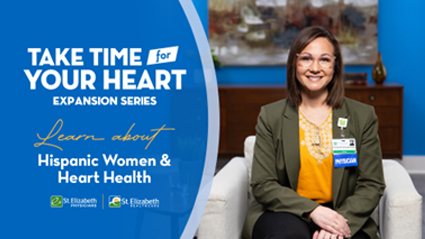
Learn about
Women & Heart Health
Women and Heart Disease
Heart disease is the leading cause of death for women in the U.S., accounting for 1 in 3 deaths each year (more than all forms of cancer combined). Despite this alarming fact, many women underestimate their personal risk of developing heart disease.
One often overlooked aspect in heart health is the gender differences. Risk factors, experiences and related conditions can look and feel different in women than they do in men.
Understanding Heart Disease
Heart disease is a broad term that encompasses a wide range of conditions that affect the structure or function of heart, this includes:
The most common type of heart disease is coronary artery disease (CAD). CAD is caused by atherosclerosis, the buildup of fatty deposits (plaque) inside the coronary arteries. The plaque buildup restricts blood flow through the arteries that supply blood and oxygen to the heart, this can cause chest pain or pressure (known as angina). When plaque ruptures, it can form a blood clot that stops the blood flow and triggers a heart attack.
Recognizing Heart Attack Symptoms in Women
While chest pain is a classic heart attack sign for both sexes, a woman may experience more subtle symptoms that are not normally recognized as being heart related. When women do experience chest pain, it is typically described as pressure or tightness.
Women are more likely to experience one or more heart attack symptoms beyond chest pain, such as:
Women’s Unique Risk Factors for Heart Disease
While many risk factors for heart disease are common to both men and women, there are certain components that uniquely or disproportionately affect women.
Diabetes: The risk of developing heart disease doubles for people living with diabetes, and women with diabetes are more likely to develop heart disease than their male counterparts.
Depression: Depression affects twice as many women as men. Depression can hurt the heart’s ability to beat correctly and can expedite plaque buildup in the arteries.
Autoimmune Disorders: Lupus and rheumatoid arthritis are autoimmune disorders that affect more women than men. These conditions cause the immune system to attack the body’s tissues and organs, rather than fighting off infections. Sometimes the heart and blood vessels are the things being attacked.
Pregnancy History: Women can face multiple cardiovascular complications during pregnancy. Studies show that conditions raise the risks of a heart attack or stroke later in life.
- Gestational hypertension: High blood pressure during pregnancy can happen in women who normally don’t have high blood pressure. It typically goes away after giving birth.
- Preeclampsia: Preeclampsia is unexpected high blood pressure and kidney problems (known as protein in the urine).
- Gestational diabetes: Having gestational diabetes puts you at higher risk for developing type 2 diabetes later in life. Diabetes is a major risk factor for heart disease.
Menopause: Estrogen plays a significant role in protecting women against heart disease, which is why the risk of heart disease is lower before menopause. However, the risk increases after menopause, partly due to a decrease in estrogen levels. This shift can lead to an increase in cholesterol, blood pressure, and the development of plaque in the arteries.
Featured expert:
Erica Pivato, DO
American Heart Association Resources:
Warning Signs and Symptoms | Go Red for Women
Healthy Headline Resources:
You Can Be a Healthier You
Call Us
For more information about Take Time for Your Heart or other Heart & Vascular Prevention and Wellness services, call
(859) 301-WELL (9355) today.



